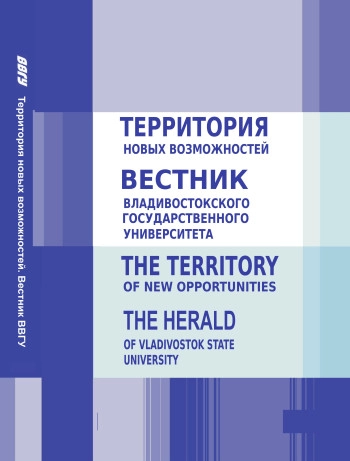In the context of improving the system of innovation-oriented personnel for the regional agricultural sector, a set of proposals has been developed regarding: improving the system of training agricultural managers in managing innovative and investment projects (including certified project managers); ad- vanced training and retraining of personnel of agricultural enterprises in the context of forming readiness for project development (business training); using personnel outsourcing in the field of project manage- ment and control. In the structure of professional competence of an agricultural project manager, based on the results of the analysis of international experience, national standard and our own research, technical, contextual, economic, behavioral and industry components have been identified, each of which includes a set of relevant abilities. The decomposition of these elements should be carried out taking into account the profile of personnel competencies for expert assessment of their readiness to manage innovative projects, which should also be used in determining the effectiveness of the personnel provision system for the re- gional agricultural sector. To study the level of formation of digital competence of future specialists of the agricultural sector in order to identify the prerequisites for changing the conditions that form favorable changes in competencies, including those related to the digital aspects of changing reality, a correlation analysis was carried out on key factors, which include socio-demographic and geo-economic, professional, organizational and motivational conditions. The results of the correlation analysis of this hypothesis gener- ally confirmed, in particular, the presence of a statistically significant strong relationship was established between the integral indicator of digital competence and the environment of initial training, specialization of professional training, as well as the level of integration of the region into the socio-political space of the Russian Federation. These indicators, reflected by the corresponding variables in a similar way, reflected their influence on most of the performance indicators, forming a predominantly moderate relationship.
innovative development, personnel provision, agricultural sector, competence, innovative pro- ject, personnel outsourcing, digitalization of the economy.
1. Tkachenko V.G. APK personnel training – priority state care: monograph. Lugansk: Amber; 2012. 240 p.
2. Popova E.P., Yakovleva T.K. Competency approach to the problem of manager performance. Management issues. 2023; 04 (21): 89–98.
3. Chernobrovkina I.I. Formation of professional competencies in the process of studying artificial intelligence disciplines. Eurasian Union of Scientists. 2024; 7-6 (7): 32–34.
4. GOST R ISO 21500-2023 "National Standard of the Russian Federation. Project, program and portfolio management. Context and basic concepts" (approved by and put into effect by order of Rosstandart dated 30.10.2023 No. 1293-st). Moscow: Russian Institute for Standardization; 2023. 16 p.
5. Project management: Fundamentals of professional knowledge. National Competence Requirements (NCB – SOVNET National Competence Baseline Version 3.0). Moscow: Design Practice CJSC; 2010. 256 p.
6. Bushuev S.D., Bushuev D.A., Yaroshenko R.F. Breakthrough competencies in the management of innovative projects and programs. Bulletin of the South Russian State Technologist. University (NPI). Series: Strategic Management, Portfolio, Program and Project Management. 2018; 1 (1277): 3–9. DOI:https://doi.org/10.20998/2413-3000.2018.1277.1
7. Porskko Yu.A. Danchenko O.B. Competence and competence: consensus. Scientific notes of the University "CROC". DOI:https://doi.org/10.31732/2663-2209-2019-55-117-127
8. Nagy A., Fenyves V., Nábrádi A. Project management systems in agriculture in the northern great plain region of Hungary. Agricultural Economics and Rural Sociology: Proceedings on 44th Croatian and 4th International Symposium on Agriculture. 2019: 223–226. URL: https://core.ac.uk/download/pdf/18184776.pdf
9. Korsakova A.V., Kopysova A.A., Sinyaeva O.Yu. Development of business education and certification in the field of project management. Leadership and management. 2016; 3 (1): 17–32. DOI:https://doi.org/10.18334/lim.3.1.2100
10. The main thing about the company PM "STANDARD". URL: https://pmstandart.ru/about/index.php
11. Certification of PM "STANDARD". URL: https://pmpractice.ru/training/sertification/pm-standart/
12. Kabulova K.I. Russia's transition to a system of professional certification of accountants. Modern science-intensive technologies. 2014; (7-1): 110–112. EDN SALQJP
13. The future of project management: Global Outlook 2023. URL: https://www.ipma.world/assets/PM-Survey-FullReport-2023-FINAL.pdf
14. Economic and social situation of the Luhansk People's Republic for 2023: statistical bulletin / State Statistics Committee of the LPR. URL: https://gkslnr.su/files/itogi_rab_GKS_1_polugod_2020.pdf (accessed date: 15.05.2023).
15. Priymak V., Pavlenko N. Organizational training in the project management system. Market infrastructure. 2018; (26): 214–221
16. Lukyanov D.V. The concept of creating corporate training centers for advanced training and retraining of personnel. Management of the development of complex systems. 2017; (29): 168–176.
17. Timofeev M.A. Technology for introducing accounting and control outsourcing into an innovative project using the ERP enterprise resource management system SAP. Creative Economy. 2016; 10 (5): 505–516. DOI:https://doi.org/10.18334/ce.10.5.35151. EDN VZXITX
18. Smirnova P.M. Specifics of outsourcing in the Russian Federation. Modern trends in management and economics in Russia and the world: civilizational aspect: mater. I All-Russia. scientific-practical. conf. with international participation. At 3 h. Part 3 (Moscow, January 16, 2020). Moscow: Institute of World Civilizations; 2020. P. 231–234. EDN GUWVEL
19. Sainchuk A.O. Outsourcing Project Team. Eastern European Journal of Advanced Technologies. 2022; 3 (3): 30–38.
20. Pryimak V., Pavlenko N. Organizational learning in the project management system. The potential of modern science: monograph. Vol. 2. London: Sciemcee Publishing; 2019. P. 161–172.
21. Criteria for evaluating qualitative studies / O.T. Melnikova, A.N. Krichevets, A.N. Gusev [et al.]. National Psychological Journal. 2014; 2 (14): 47–49. DOI:https://doi.org/10.11621/npj.2014.0206. EDN TPUWKN
22. Redecker Ch. (2017). European Framework for the Digital Competence of Educators: DigCompEdu.https://doi.org/10.2760/159770. URL: https://www.researchgate.net/publication/329191291_European_Framework_for_the_Digital_Competence_of_Educators_DigCompEdu/citation/download
23. DigComp 2.0: The Digital Competence Framework for Citizens. Update Phase 1: the Conceptual Reference Model. EUR 27948 EN / R. Vuorikari, Y. Punie, S. Carretero Gomez and G. Van Den Brande. Luxembourg (Luxembourg): Publications Office of the European Union; 2016. JRC101254. URL: https://publications.jrc.ec.europa.eu/repository/handle/JRC101254





